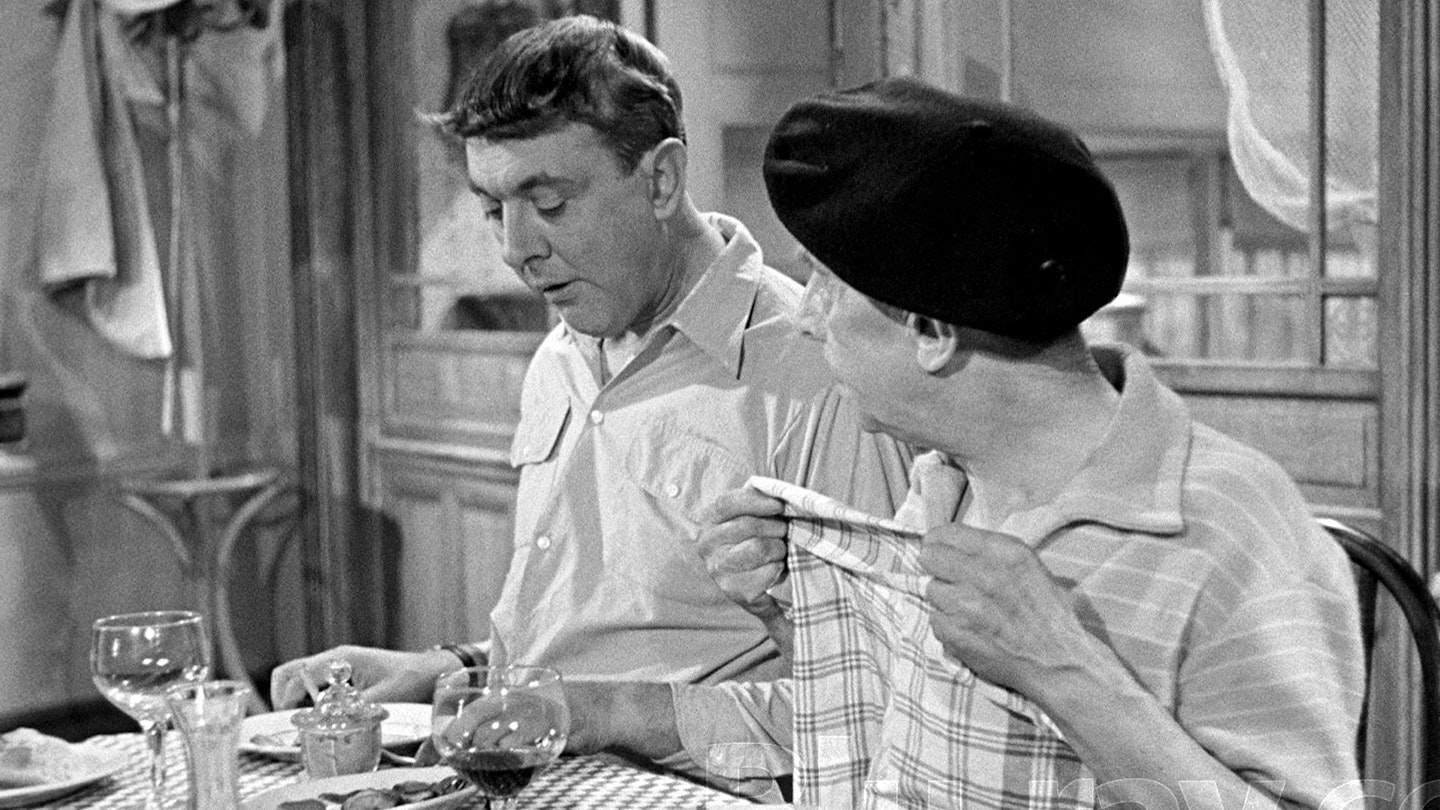Jacques Tati is the last of the great movie clowns. The heir of Max Linder, Chaplin and Keaton, he primarily saw comedy as a visual medium. Not that his films were silent. Indeed, sound played a crucial part in his offbeat world.
But Tati's genius lay in the meticulous staging of sight gags without dialogue, which could either be over in the blink of an eye or could develop into chokingly funny bouts of sustained lunacy.
Tati was still working on his debut feature, Jour De Fete (1948), when he saw Emile Reynaud's hand-drawn turn-of-the-century Praxinoscope film Autour D'une Cabine, which was shown in Paris as part of cinema's 50th anniversary celebrations. Clearly the idea of a beach comedy lingered in the back of his mind and, as seaside holidays were still something of a novelty, he brought his largely non professional troupe to the Breton resort of Saint-Marc-sur-Mer in the summer of 1951.
In addition to writing and directing the film, Tati was also to take the role of M. Hulot, the accident-prone everyman he would play for the rest of his career. With his angular posture and apologetic flounce, Hulot is an archetypical innocent abroad, a quixotic bringer of calamity whose deadpan expression never betrays any awareness of the chaos that follows in his wake. From the moment he arrives at the hotel, he upsets the other guests. He plays the gramophone too loud; he accidentally switches round a table top and ruins a game of cards; he opens a door and allows a gale to blow a businessman's papers in all directions. He even nearly causes someone to drown by distracting the attention of a swimming instructor.
Yet, he is also ceaselessly eager to please even to the point of apologising for things that aren't his fault. Although he's a unique creation, there's a Chaplinesque air about Hulot. His distinctive clothing is an ill-fitting inversion of Chariot's famous Tramp uniform; he never gets the girl and he inadvertently disorders every situation he enters. Yet, Hulot has none of Chaplin's petulance or his desire to wreak revenge on a rival even though he does, at one point, kick a supposed peeping torn up the backside.
Similar pieces of classic slapstick business are dotted throughout the film a picture that won't sit straight on a wall; a rug that gets snagged on Hulot's spur; a tennis game, complete with Hulot's fabulously eccentric serving style (which was imported from Tati's legendary music-hall act) and the pratfalls that either send him careering through the hotel lobby with a teetering pile of suitcases or plunging into the sea.
At another point, he gets his foot caught in the rein as he tries to mount a horse and is dragged along the beach. It's pure mime, indeed, it's pantomime and yet there's nothing malicious about the comedy. Only Hulot suffers and, like all indestructible socko characters, the only thing that really gets hurt is some pride.
Several other gags are based on acute social observation. For example, there's the bored husband, who can't get to meals fast enough because they break the monotony of being with his wife, whose enthusiasm for things like seashore walks he disdains with open contempt.
Then there's Tati's satirical assault on the modern world. He would go on to lambast gadgetry in Mon Oncle and motorised consumerism in both Playtime and Traffic. But he begins the offensive against transport here. Even at the outset of their vacation, the holidaymakers are sent scrambling between platforms in an attempt to catch a train and, subsequently, a broken-down Amilcar, a hearse, a horse and a kayak all conspire to confound the hapless Hulot.
In the absence of dialogue, sound takes on a key comic role. Frequently, sight and sound connive at deceiving the viewer into expecting pay-offs that never arrive in the anticipated form. When a waiter stomps downstairs, we presume the clicking noise comes from his shoes. But as he reaches the lobby, Hulot bounds into shot returning a table-tennis ball, revealing that the pinging had been his curiously non-rhythmic game all along.
This is typical Tati. He never forces a joke upon us. Instead, he keeps the camera at a distance and allows us to discover the comedy in our own time. It's an almost Hitchcockian approach to humour a slow build up of comic suspense. Yet there's also an echo of Buster Keaton in the precise manner in which gags are prepared and executed. The sequence in which Hulot paints
a boat bobbing on the tide, for example, is as exquisite as it's ingenious.
Hailed by the Nouvelle Vague auteurs as the film that smashed the tyranny of traditional screen narrative, this is so much more than merely an assemblage of comic cuts. It's a masterpiece of cinematic innovation.
